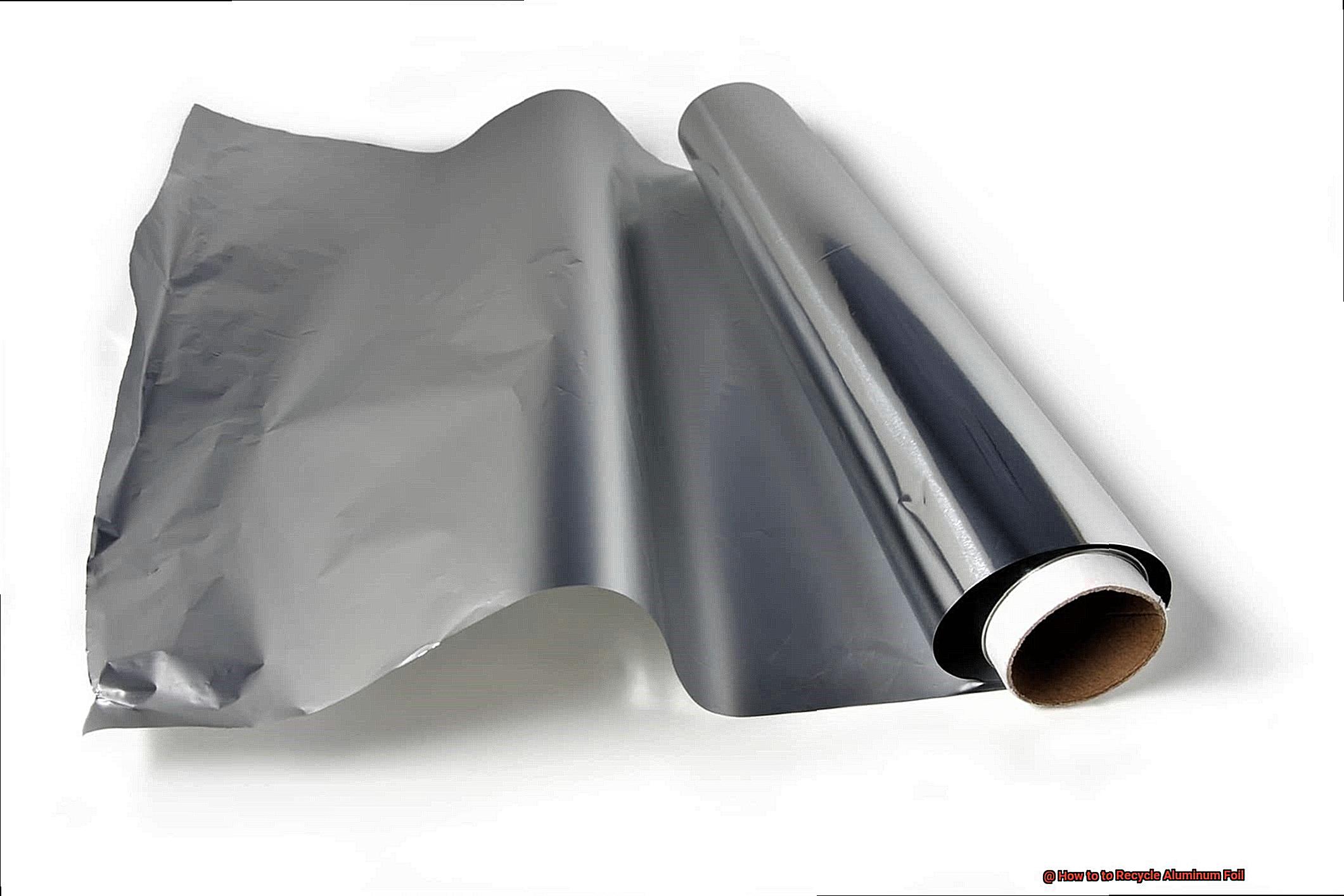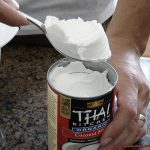Do you ever crumple up a used piece of aluminum foil and toss it in the trash without a second thought?
If so, you’re not alone. But did you know that recycling aluminum foil can help save energy, reduce waste in landfills, and protect the environment?
It’s true. In fact, aluminum is one of the most recyclable materials on the planet.
Recycling just one pound of aluminum can save enough energy to power a TV for three hours. So, how do you recycle your aluminum foil?
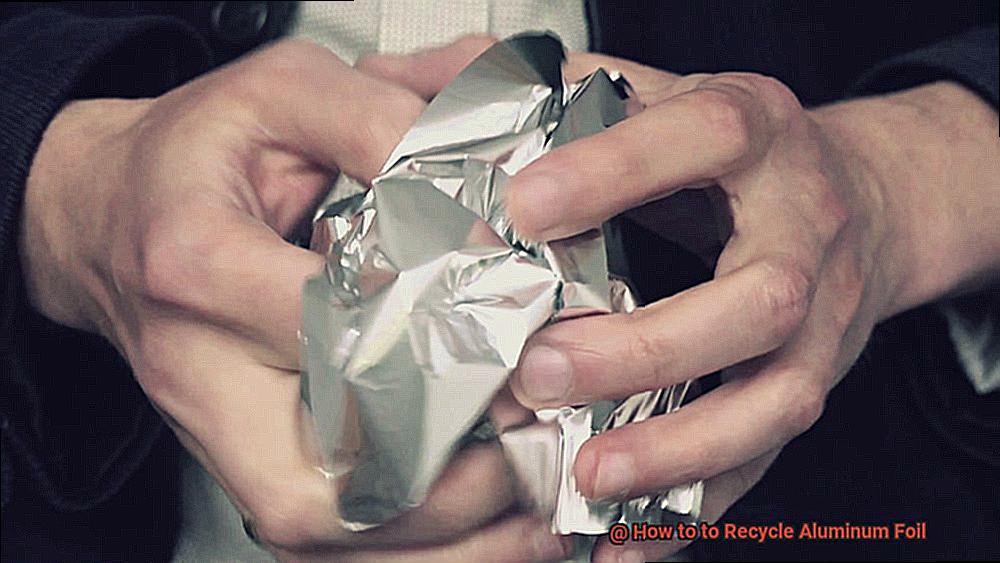
It’s simpler than you might think. First things first: make sure your foil is clean and free from any food residue.
Rinse it off with water and let it dry before moving on to the next step. Then, ball up the foil into a softball-sized shape to avoid any issues with sorting machines.
Before you toss your balled-up foil in with your other recycling materials, check with your local recycling program to see if they accept aluminum foil. Some programs prefer that the foil be left flat rather than balled up.
Others may only accept larger pieces of at least 18 inches in size. It’s always better to double-check before tossing it in.
Aluminum foil is an incredibly versatile material both inside and outside of the kitchen. And when recycled properly, it’s an easy way to make a positive impact on our environment.
You’ll be doing your part to reduce waste and lower your carbon footprint – all while enjoying the convenience of this handy material.
Cleaning Aluminum Foil Before Recycling
Contents
Aluminum foil is a versatile material that we use for everything from wrapping up leftovers to grilling vegetables.
However, once we’re done with it, the foil often ends up in the trash, contributing to the waste problem. Fortunately, recycling aluminum foil is an easy and effective way to reduce our environmental impact.
But before you toss your used foil into the recycling bin, it’s crucial to clean it thoroughly. This step is essential to prevent contamination of other recyclables and ensure that the recycling process is as efficient as possible.
So, how do you clean aluminum foil before recycling? It’s actually quite simple.
The first step is to remove any food residue or debris from the foil. You can do this by wiping it down with a damp cloth or rinsing it under running water.
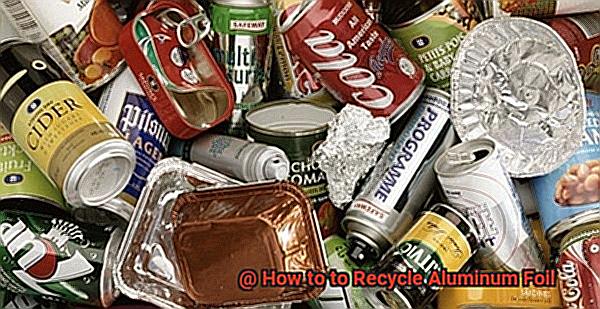
For stubborn stains, a little bit of dish soap can help, but be sure to rinse off all soap residue thoroughly. Another effective cleaning method is to soak the foil in a solution of hot water and baking soda for a few minutes before rinsing it off.
This will help remove any lingering food odors and stains. It’s important to note that some recycling programs may not accept aluminum foil that has been contaminated with food or grease.
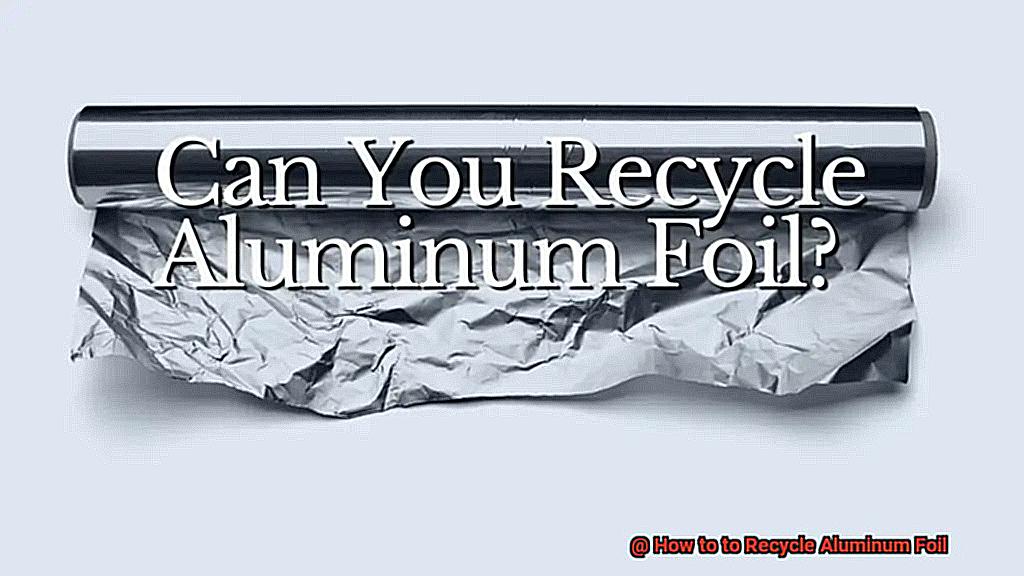
In these cases, it’s best to dispose of the foil in the regular trash. Once your foil is clean and dry, you can recycle it using the same methods as other aluminum products.
Aluminum foil can be recycled into all sorts of things like cans, car parts, and even airplanes. Just be sure to place it in a separate recycling bin designated for aluminum products.
Recycling Aluminum Foil vs. Cans
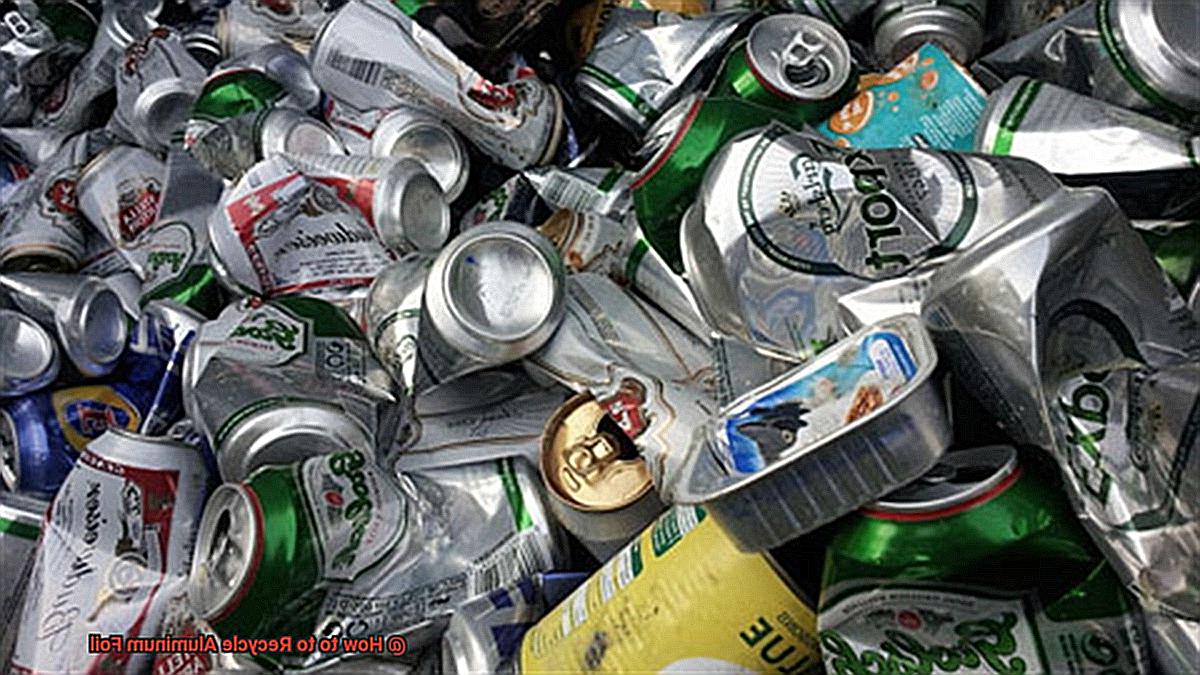
Firstly, it’s crucial to clean your aluminum foil thoroughly before recycling.
Just like how you wouldn’t want to cook a delicious meal in a dirty kitchen, recycling centers don’t want to recycle dirty aluminum foil. So, make sure to rid it of any food debris before tossing it into the recycling bin.
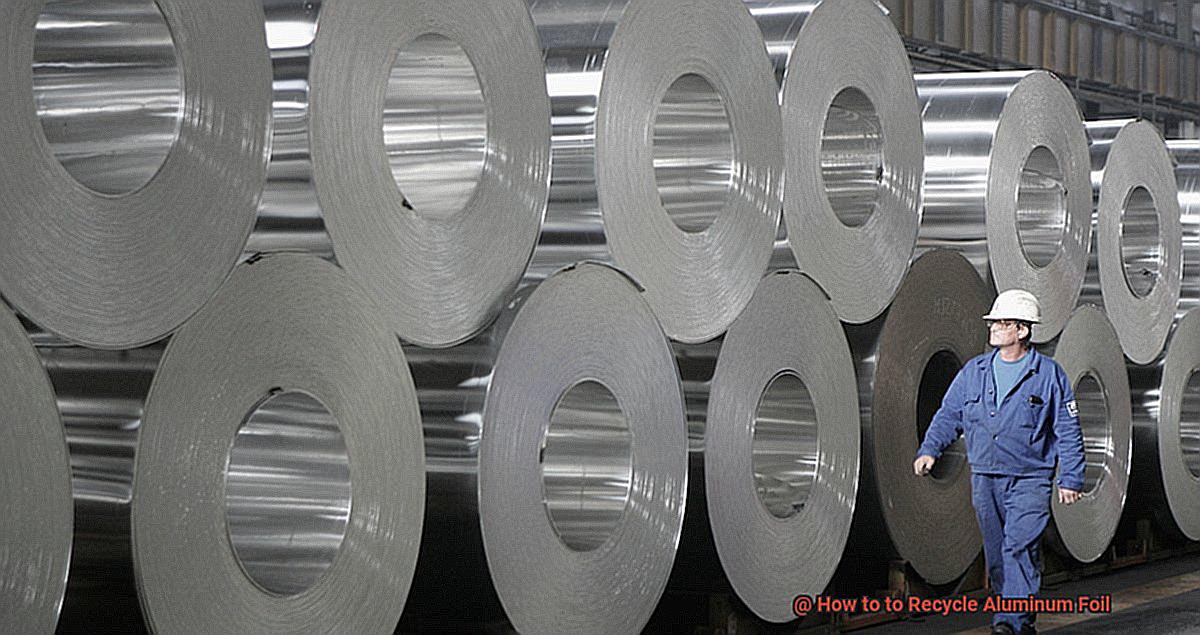
Another key point to remember is that aluminum foil should be separated from other materials such as plastic and paper when recycling. This is because different materials require different recycling processes.
Imagine trying to bake a cake with all the ingredients mixed together – it wouldn’t work out very well. The same goes for recycling.
Recycling aluminum foil has numerous benefits, including reducing the amount of waste in landfills and conserving energy. In fact, did you know that recycling just one ton of aluminum saves 14,000 kWh of energy and prevents the emission of 10 metric tons of greenhouse gases?
That’s equivalent to powering 1,500 homes for an entire year. However, not all recycling centers accept aluminum foil.
It’s best to check with your local center or municipality to see if they accept it. If they don’t, there may be other options available such as mailing it to a specialized recycling center or dropping it off at a nearby collection point.
Now, let’s talk about the difference between recycling aluminum foil and cans for money. Depending on your location and current market value for aluminum, some recycling centers may offer a small amount of money for aluminum foil – but don’t expect to get rich from it.
However, the real reward comes from making a positive impact on our planet by reducing waste and conserving resources. In conclusion, both aluminum foil and cans can be recycled and contribute to a more sustainable future.
By keeping in mind the tips I’ve shared with you today, you can ensure that your aluminum products are being recycled properly and doing their part in creating a better world for us all.
Can You Recycle Aluminum Foil for Money?
While the amount you receive may vary depending on your location and the demand for aluminum in your area, some recycling centers and scrap yards will pay you for your foil. But before you start collecting, it’s important to note that not all recycling centers accept aluminum foil.
Be sure to check with your local center beforehand to ensure that you’re not wasting your time. To get the most money for your aluminum foil, it’s crucial to clean it thoroughly.
Begin by wiping away any food debris or grease with a damp cloth or sponge. If the foil was used for cooking, rinse it with warm water and dish soap before drying it off completely.
This ensures that the foil is ready for processing at the recycling center. It’s worth noting that not all types of aluminum foil are created equal.
Recycling centers prefer foil that is thick and not too crinkled, as this makes it easier to process. Additionally, coated or laminated foil may not be recyclable at all.
So, if you want to make some extra cash by recycling your foil, be mindful of the quality of the material. Recycling aluminum foil not only puts money in your pocket but also benefits the environment.
Aluminum is a highly valuable material that can be recycled over and over again without losing its quality, making it an incredibly sustainable choice. By recycling aluminum foil, we can reduce waste in landfills and conserve natural resources.
With a little effort and care, it can be recycled and even earn you some extra cash.
Can You Recycle Aluminum Foil with Food on It?
Well, the answer is not a straightforward one.
While aluminum foil itself is indeed recyclable, it’s not recommended to recycle it with food residue on it. Why, you ask?
Food particles can contaminate the recycling process and cause issues during the melting process. It’s like trying to bake a cake with spoiled ingredients – the end result won’t be very appetizing or high quality.
Recycling facilities require clean aluminum foil that’s free of any food residue or grease to ensure the recycled material is of high quality and doesn’t contain impurities. Furthermore, some recycling facilities may not accept aluminum foil with food residue due to health and safety concerns.
But don’t despair – there is still hope. The best course of action is to try and remove as much of the food residue as possible before recycling.
You can wipe the foil clean with a damp cloth or use hot water and soap to wash it. Once the foil is clean and dry, it can be recycled along with other clean aluminum materials.
It’s important to note that not all local recycling programs may accept aluminum foil, regardless of whether it has food residue or not. That’s why it’s always a good idea to check with your local recycling program for specific guidelines on recycling aluminum foil.
So, while it’s possible to recycle aluminum foil with food on it, it’s not recommended as it can cause issues during the recycling process. It’s best to try and remove as much of the food residue as possible before recycling or opt for using clean aluminum foil instead.
Can You Recycle Tin Foil Trays?
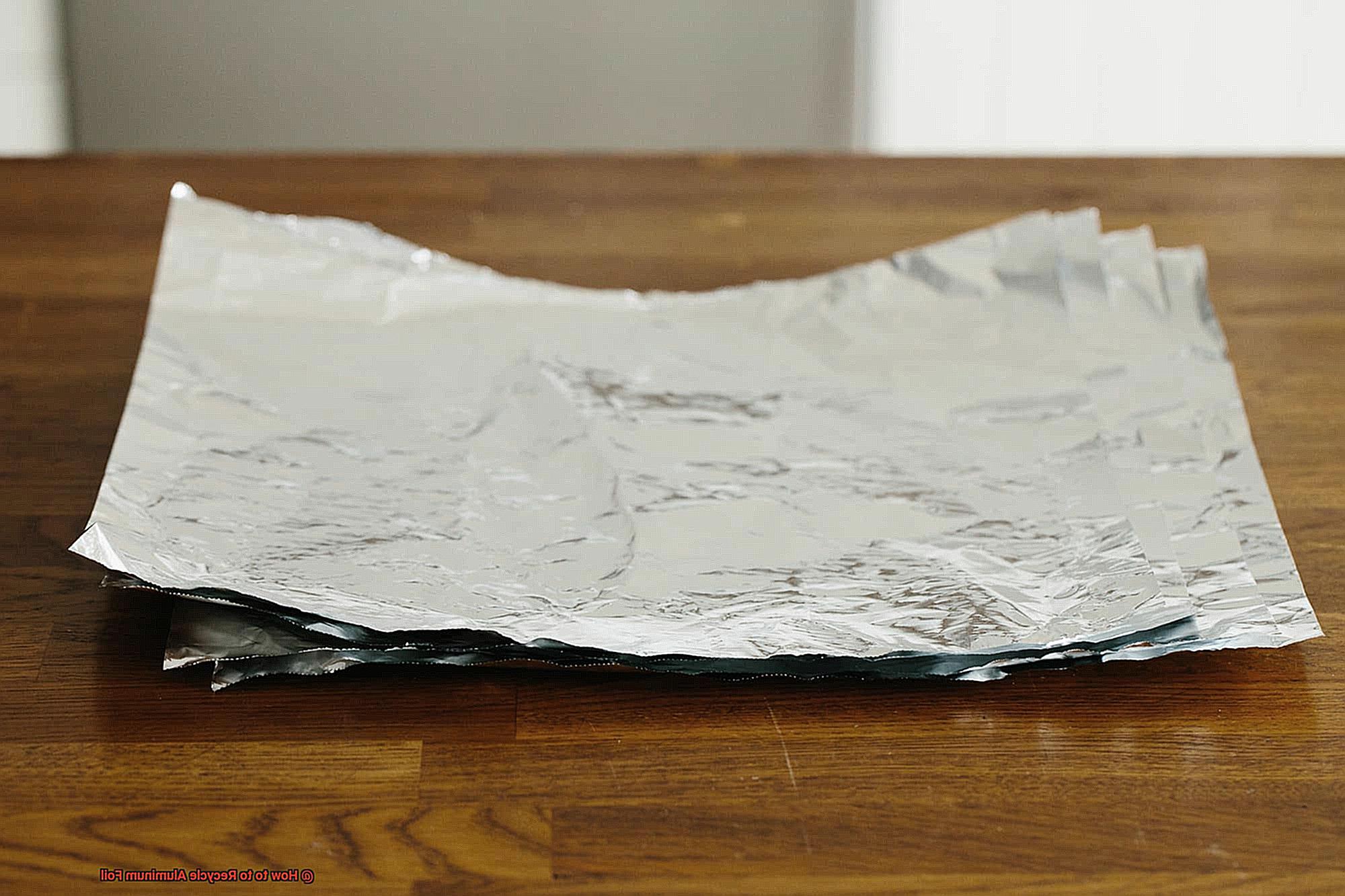
Tin foil trays are usually made of aluminum, which is recyclable.
However, things can get complicated when the tray is contaminated with food residue or grease. To ensure that your tin foil trays can be recycled, it’s essential to clean them thoroughly before placing them in the recycling bin.
Otherwise, the entire recycling batch could be contaminated. Just like baking a cake with spoiled ingredients, recycling contaminated foil can result in an unappetizing and low-quality end product.
So, how do you clean your tin foil trays? Start by removing any food residue or grease and wiping them down with a damp cloth.
If the tray is still too dirty to recycle, it’s best to throw it in the trash. By taking these simple steps, you’re doing your part to help create a more sustainable future for our planet.
It’s also worth noting that not all recycling programs accept tin foil trays. Therefore, it’s crucial to check with your local recycling program to see if they accept aluminum trays and if there are any specific guidelines for cleaning and preparing them for recycling.
Alternatively, some areas may accept tin foil trays at scrap metal recyclers. These businesses may even pay for your scrap metal, including aluminum trays.
However, it’s important to check with the recycler beforehand to ensure they accept tin foil trays and what their requirements are for accepting them. In summary, while tin foil trays can be recycled, ensuring they are thoroughly cleaned before recycling is vital.
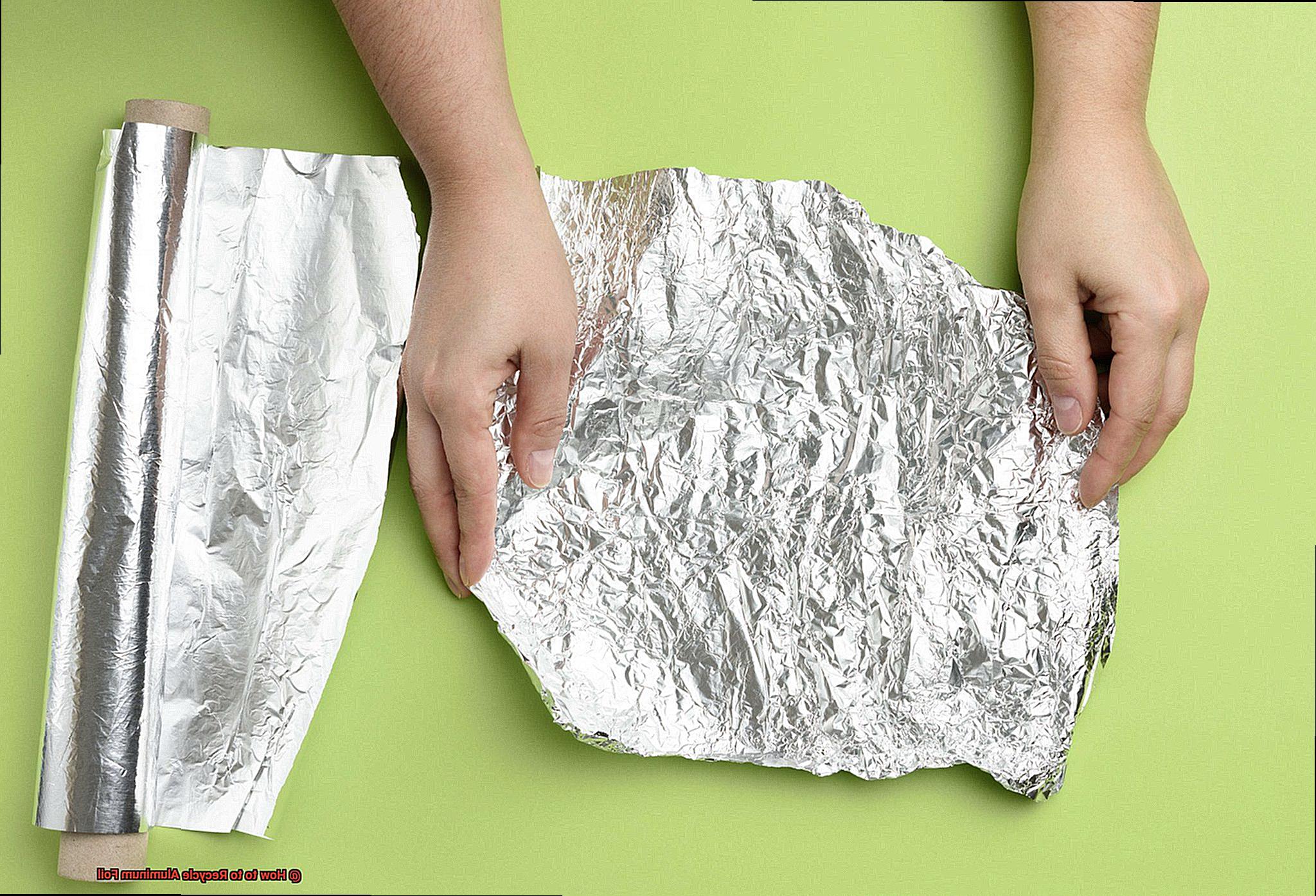
Why Isn’t Aluminum Foil Always Recyclable?
Aluminum foil is the go-to kitchen staple for cooking, wrapping, and preserving food.
However, not all aluminum foil can be recycled. Despite aluminum being one of the most easily recyclable materials, only about half of all aluminum foil is actually recycled due to a few factors that impact its recyclability.
The first reason why aluminum foil may not be recyclable is its tendency to become contaminated with food residue. When aluminum foil comes into contact with food, it can become coated with oils, fats, and other substances that make it difficult to recycle.
Just like baking a cake with spoiled ingredients leads to an unappetizing result, recycling contaminated foil can lead to a low-quality end product. Recycling facilities have strict guidelines on what types of materials they can accept, so if the aluminum foil is too contaminated, it may be rejected.
Another factor that affects the recyclability of aluminum foil is its thickness. While thin sheets of aluminum foil are easy to process in recycling facilities, thicker sheets may require special equipment or processes to break down.
These thicker sheets are often used for baking or cooking trays and can be more challenging to recycle. This can make recycling them more expensive and less efficient.
Additionally, not all recycling facilities are equipped to handle aluminum foil. Some may only accept certain types of metals or materials, while others may not have the necessary equipment or infrastructure to recycle aluminum foil.
Regulations and guidelines for recycling vary between regions and municipalities, so checking with your local recycling facility to see if they accept aluminum foil and following any specific guidelines or requirements is important.
To increase the chances of aluminum foil being recycled properly, it’s essential to clean it thoroughly and dispose of it properly.
oLXXz-xEDZc” >
Conclusion
In conclusion, recycling aluminum foil is an easy and impactful way to reduce waste and help the environment.
Aluminum is a highly recyclable material, with just one pound of it being enough to power your TV for three hours. But before you toss your used foil into the recycling bin, make sure to give it a thorough cleaning to prevent contamination.
Different recycling programs may have varying guidelines for accepting aluminum foil, so it’s always best to double-check before tossing it in with other recyclables. Keep in mind that not all types of foil are created equal – some may not be recyclable at all.
Despite these challenges, properly disposing of your aluminum foil can make a significant difference. Recycling reduces waste in landfills and conserves natural resources, while also potentially earning you some extra cash.
